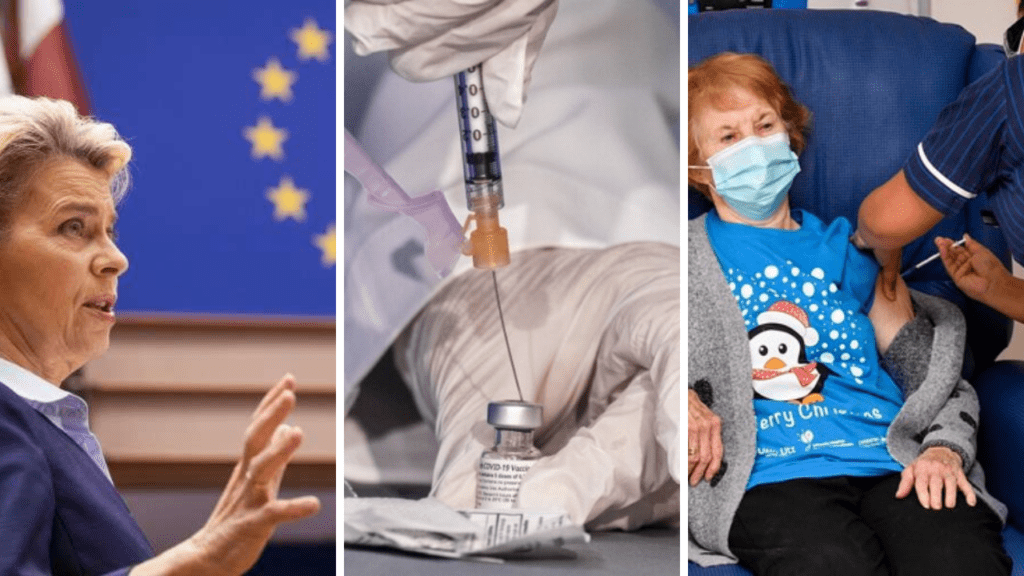The European Union will start vaccinations against the coronavirus several weeks later than the United Kingdom and the United States, as it is still waiting for market authorisation.
Procedures to assess vaccines before they can be placed on the market differ across the world, but the conditional market authorisation is the most appropriate one in the EU, as opposed to the temporary emergency authorisation in the UK.
"However, such a conditional market authorisation can only be granted if sufficient data are available on the quality, safety and efficacy of the vaccine," said virologist and interfederal Covid-19 spokesperson Steven Van Gucht.
"The benefits of the vaccine must outweigh any risks," he added, stressing that the same high standards of approval as for any other vaccine or medicine in the EU are applied.
UK and US: temporary emergency authorisation
However, the first Covid-19 vaccinations were administered in the UK on 8 December, and the US and Canada started just under a week later, on 14 December.
In those countries, the vaccine was authorised for early emergency use, before the marketing authorisation was obtained, Van Gucht explained.
Related News
- Belgium will start vaccinating 'on same day' as all EU members
- 'It's V-Day': UK starts vaccinations against Covid-19
- Europe set to approve Pfizer's Covid-19 vaccine before Christmas
"Such a temporary emergency authorisation requires less evidence and controls," he said, adding that such an approval was designed to allow the early and temporary use of an as of yet unapproved vaccine or medicine, in an emergency situation.
"This emergency approval only lasts as long as there is an emergency, and can be terminated at any time," Van Gucht said.
EU: conditional market authorisation
The EU decided to wait a few more weeks, and to deploy the vaccine only after a conditional market authorisation.
"As soon as the opinion of the European Medicines Agency (EMA) is available, the European Commission can then decide whether or not to grant the marketing authorisation," he said.
"From then on, EU Member States, including Belgium, can start vaccinating," Van Gucht said, adding that EMA indicated that they will decide on Pfizer-BioNTech's vaccine as early as 21 December instead of 29 December.
"This means that the market authorisation may already be available in December," he said. "All in all, that will still be a few weeks later than either the UK or the US."
However, the licence will ensure that all drug safety and production controls including batch controls, and other obligations are legally binding after the approvals have been granted, and are reviewed and followed up by the EMA on an ongoing basis, according to Van Gucht.
"Once the vaccine is on the market, the companies must produce regular safety reports, which will be evaluated by the national and European competent authorities."
These periodic safety reports, usually twice a year, are drawn up for all new vaccines, but for the Covid-19 vaccines, an additional short safety report also has to be submitted every month.
"This mechanism will guarantee that the vaccines used during this massive vaccination campaign will be safe," Van Gucht concluded.
Maïthé Chini
The Brussels Times

